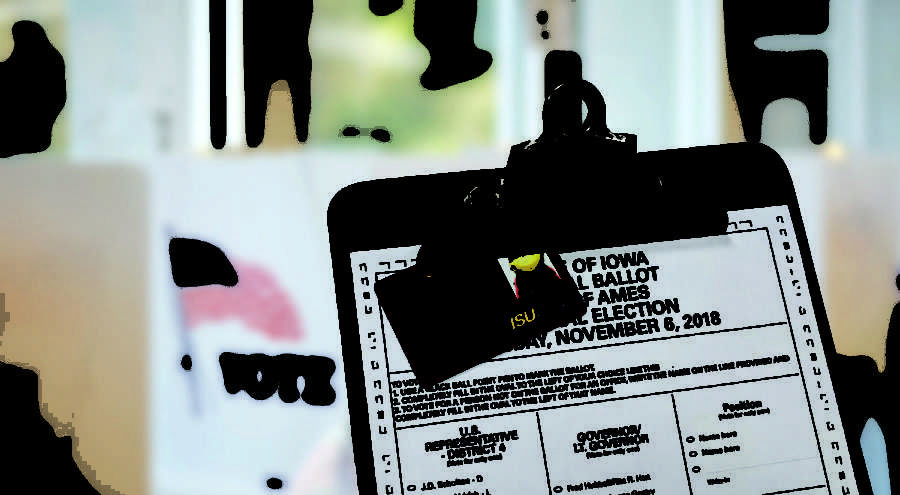- News
- News / Politics And Administration
- News / Politics And Administration / Campus
- News / Politics And Administration / City
- News / Politics And Administration / State
- News / Student Life
ISUCards to become valid voter identification (copy)
Photo illustration by Peter Lemken
Student IDs are not currently accepted by polling places as a valid voter ID as they don’t have an expiration date.
August 13, 2019
ISUCards will be updated to include an expiration date beginning in fall 2020, though students will need another form of identification still for elections prior to the implementation of this change, such as the Nov. 5, 2019 presidential elections.
The voter identification law the Iowa Legislature passed in 2017 requires Iowa voters to have a valid photo identification, and with the eventual inclusion of an expiration date on ISUCards, they will be valid voter identification in part. However, in addition to having a new ISUCard, students will need to prove Iowa residency to vote.
Iowa Sec. of State Paul Pate sent a letter to Iowa State President Wendy Wintersteen in Jan. 2018 seeking collaboration on making ISUCards valid voter identification.
“My request to you is to provide some form of official documentation, paper or electronic, to all your students that includes their specific address so they can utilize that when registering to vote on Election Day,” Pate wrote in the letter.
Wintersteen and Pate exchanged several letters, eventually culminating in the inclusion of address verification available to students electronically.
Subsequently, Iowa State students had a new “Voter Reg Address” page in AccessPlus, which they can show to election officials to prove their residency.
The College Democrats, who had met with Iowa State administration on the issue and delivered a presentation on it at a Board of Regents meeting, released a statement saying their are “thrilled” with this update, but also expressed hope the university will allow current students to update their own ISUCards “at no cost to the student.”
“But let’s be clear: this change is only a single step towards blunting the impact of the discriminatory Voter ID Law. Voter suppression is still alive and well in Iowa even with important and impactful change,” the statement said. “We are very happy with this news, but the most important takeaway is that the requirement of specific forms of ID at the polls has a real and negative impact on the ability for eligible voters to access their right to vote.”
As of 2018 in Iowa, one in six black and hispanic residents otherwise eligible to vote did not have required voter identification, while only one in 13 white residents did not have proper identification. Among those aged 18-24, one in eight did not have the required identification.

















